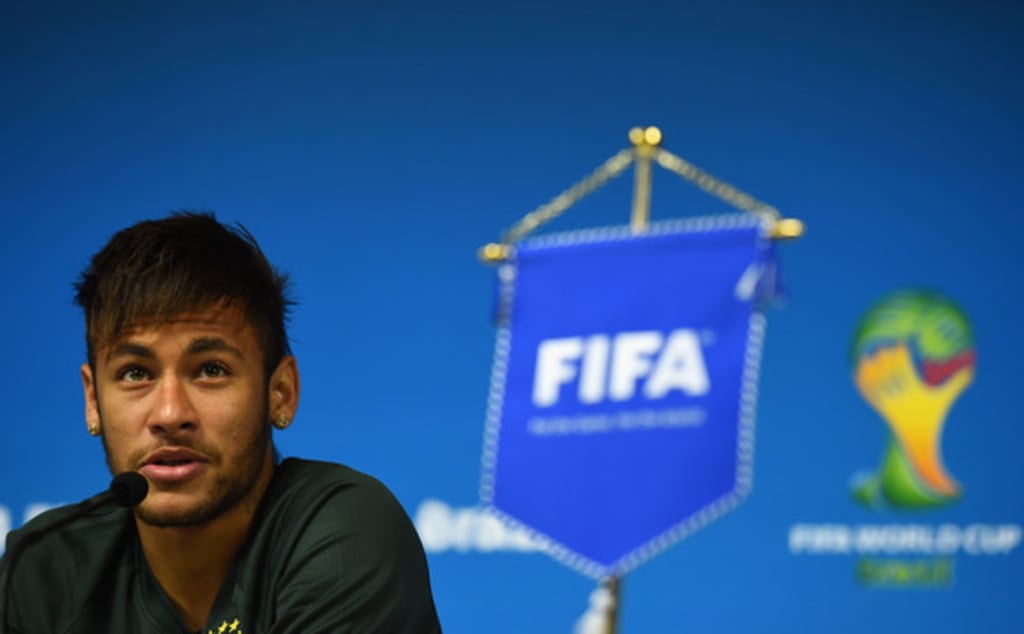Financial Fair Play
Why Financial Fair Play Is Bad for Soccer

There is an old saying that goes, “you don’t have to be sick to get better.” More on this later. Paris Saint Germain pulled off the transfer of the century last summer after signing Neymar for a record fee $263 million. From the player perspective this was an opportunity to step out of Lionel Messi’s shadow and take his place as the best in the world. From the fan perspective, we are left collectively scratching our heads at how this is actually possible. In 2010, UEFA began setting the table for a new policy that would require clubs to remain solvent in their pursuit of new talent via the transfer window. This new policy was Financial Fair Play.
Financial Fair Play regulations were implemented to prevent football clubs from spending more than they earn in pursuit of success to prevent insolvency and ultimately their demise. The regulations require sanctions for clubs that exceed spending on a consistent basis. Given this only impacts organizations that compete in UEFA competition, a disqualification from those competitions are imminent. Other penalties include fines, confiscation of prize money, and transfer bans. Soccer in Europe has had issues with debt for decades. Russian oligarch Roman Abramovich purchased Chelsea in 2003, and in his first eight years in control of the companies that own the club Chelsea reportedly lost 1 billion dollars. This is not new. It is the dirty little secret within European soccer that clubs do not make money long-term, especially the smaller clubs with limited resources and thus smaller revenue.
As fans of the sport we should all be in agreement that something must be done about the business as usual mantra in terms of club spending. Super-teams in any sport do much to derail competition but in soccer the spending on behalf of the bigger clubs make the summer of sixteen in the NBA look like child’s play. Bigger clubs who are backed by billionaires gorge money into the sport and funnel talent to specific clubs. What gets lost in the Neymar signing is that they also signed Mbappe for $160 million. What that does for the competitive balance in Ligue 1 is insurmountable. In La Liga for example, Real Madrid and Barcelona have won every league title conceding one to Atletico dating back to the 2004-2005 campaign. This is because they have the resources to outspend. The larger clubs pluck talent from smaller clubs in the league reducing these organizations to farm systems for the super clubs. Isco, Carvajal, Sergio Ramos; the list goes on and on of players who have left their respective clubs to join and form a super-team. This is good for the Champions League but competitive balance in the individual European leagues will continue to suffer.
Financial Fair Play while it is an option it is not the long term solution. There are many loopholes in the logic that afront this policy. FFP widens the gap between smaller and larger clubs by effectively freezing the hierarchy in European soccer. The premise suggests that clubs are unable to accrue more than $30 million in losses over a three year period. That means that if Aston Villa, for example, were to generate $50 million in TV rights, ticket sales, and player sales but then decided to sign Ousomane Dembele for $90 million they would be in breach of FFP. They are outpriced for talented superstars as they are unable to compete through the transfer window and in fact gridlocked and unable to compete. While larger clubs in the league through financial backers with huge check books can then funnel money to super clubs through a third party to circumvent FFP sanctions. The rich get richer.
While FFP is not the long-term solution something did indeed have to be done. In 2009, half of European soccer clubs saw a loss the prior year and twenty percent of those clubs were in danger of bankruptcy. Another report indicates that they were in debt $4.5 billion. Those are numbers that indicate that change was necessary. An enlightening consequence of Financial Fair Play incentivizes clubs to focus on youth development and growing talent from the ground up via their academies. Given the transfer window is a crap shoot in most cases outside of the world’s best players, growing from the ground up is a healthy way of maintaining solvency for Europe’s smaller clubs.
An alternative solution for European soccer is a salary cap. This would require collective bargaining on behalf of the major leagues on the continent. This is something that has already been discussed. A year removed from the Neymar transfer it now looks to be the correct move for the sport. UEFA President Aleksander Ceferin stated “In future, we will have to take into serious consideration the possibility of limiting clubs’ budgets for players’ wages. The wealthiest clubs are only getting richer and the gap between them and the rest is getting bigger.”
A salary cap in soccer would do a few things. As fans we would see a fall in player wages, a fall in player transfer fees (which would ultimately hurt smaller clubs as less money would trickle down through the transfer window), and a rise in club profits. The NFL represents a league with a hard cap that operates as a mechanism to control and bolster competitive balance. Soccer on the contrary operates in anarchy as it relates to spending.
Despite what may be best for the sport, the Neymar signing signals a trend as opposed to an anomaly. As more billionaires begin to back European clubs the spending will likely increase. In 2017, $4.7 billion was spent on transfers from June to the end of August all but equaling the entirety of the 2016 calendar year. As more money from television rights and willful investors pour into the sport the spending will only continue. The NBA is having this same problem currently within the salary cap restrictions. The NBA received $24 billion in television rights which increased the salary cap from $70 million to $94 million. What that did was allow Kevin Durant to sign with the Golden State Warriors within a soft cap. What that has done to the competitive balance of the league is undeniable. World Football is a gross exaggeration of this example in that there is no soft or hard cap.
So, to the question is Financial Fair Play good for the sport, no. The positives that FFP bring to the game certainly do some good in attempting to curtail spending. The reality is that it punishes the smaller clubs. Clubs are essentially locked into a cap based on their revenue. Last season in the Premier League, the top six club’s annual revenue exceeded that of the other fourteen clubs. That means the power structure is locked via “salary cap” so to speak barring a massive outside investment on the behalf of the smaller clubs.
The problem with the policy is the intent. FFP does not target the problem of competitive balance. It targets the problem of solvency in soccer. Soccer is the most popular sport in the world with some of the brightest stars across sports. It is already winning on the world stage. What it is missing however, is narrative and drama. Year in and year out you can book which clubs will finish at the top of their respective leagues (excluding Leicester City), just look at the winners since 1992 in the Premier League.
That is where the NBA gains ground. The stars have personality and a narrative to go along with their exceptionalism. Perhaps the ground that has been gained on behalf of the NBA will force UEFA to peek in the rear view and finally address the problem instead of maintaining the blind arrogance they currently operate with. Time will tell. But, given the importance of tradition in soccer the probability of change is bleak. Either way I will be watching and judging by the popularity of the game so will you.






Comments
There are no comments for this story
Be the first to respond and start the conversation.